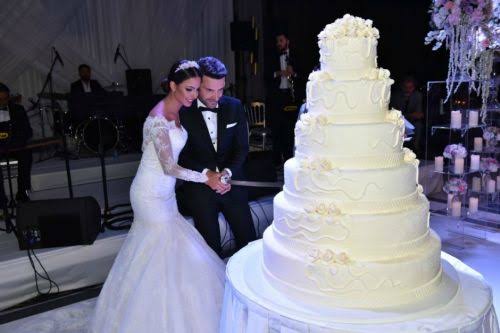Things to Know About Marriage Traditions in Turkey

Marriage

Marriage traditions in Turkey are a formation that has existed since the earliest times and has a great importance on human life and society. Marriage as a term is the uninterrupted union of a man and a woman as husband and wife in any life situation. It is the foundation of the family, which is the cornerstone of society and has universal importance. Marriage law has certain rules and patterns that change the world, shaped by different cultures and entailing the customs and traditions that define a particular society.
Different Types of Marriage
In the past, marriage between relatives was common. Today, the rate of such marriages has decreased due to the effect of urbanization.
Another marriage is the kind that happens when the brother dies. In this case, the deceased man’s brother – he may be single or widowed – marries the widowed woman (Levirat). This is done in order to preserve the legacy of the deceased, in the family and in the well-being of children.
Another is “taygeldi” marriage. In this marriage, a married widow and children from previous marriages are settled in the house of the widowed man. And it’s called Taygeldi marriage.
Another type of marriage that was frequently practiced in the past is the “cradle notching”. While the children were still in their cradles, their parents made promises to each other and engaged the children. If one of the girls or boys refused in the future, families would consider it a matter of honor and turn it into bloody family feuds. Today, this tradition is almost nonexistent.
Another marriage arrangement or tradition in Turkey is the “internal groom” marriage. In this marriage, the groom settles in the house where his wife lives and lives with his wife’s family.
In another marriage called “Berdel” or “exchange, different”, two families’ daughters are exchanged and married to their sons in order not to give bride price.
According to Turkish tradition, marriage between “milk” siblings is not possible. Children who are breastfed by a woman (in cases where a mother cannot breastfeed her child due to illness or other reasons) become “milk-brothers” with the children of the woman whose milk they drink, and these “milk” siblings do not marry.
Marriage Age
The general age at marriage in Turkey is approximately 22 for men and 20 for women. It can vary between 5-6 years. Today, young people go to college, which often extends the marriageable age until graduation. Older siblings are expected to marry before younger siblings, especially if they are of the same sex. Although the age of marriage varies according to regions in the regions where traditions are observed, the pressure to marry at a younger age continues.
In general marriage procedures, the first step towards marriage is expected from the groom and his family, and the suitor’s family remains passive.
Spoken Word
The Interruption begins with asking if the girl has a heart. The two families interrupt in front of all the guests in the house through the pastors (women who are researching about the future bride). The engagement ceremony is completed by attaching a ring and an embroidered scarf purchased by the future groom’s family to the bride. In some regions, the “Speech” is also called a small engagement ceremony.
Engagement

The first step after speaking is the engagement ceremony. The engagement ceremony is held at the bride’s home, and in some regions the costs of the ceremony are borne by the groom’s family, and most often by the bride’s family.
After the date of the engagement ceremony is determined, an invitation called “invitation to the neighbors” is made and distributed. The guests gathered at the groom’s house go to the bride’s house together on the engagement day.
In the traditional sections of the community, men and women sit separately in the bride’s house, and after lunch, the bride is put on jewelery and a special engagement dress, together with the mother-in-law and the groom’s relatives.
In some regions, the groom does not come to the bride’s house. In the engagement ceremony, where the groom comes, a ring is placed on the ring fingers of the candidates’ right hands by an old man close to the family, accompanied by standard words and wishes on the bride and groom.
Today, in many engagement ceremonies, it is now an environment where wedding halls are rented, men and women sit together, mostly live music is played and everyone has fun. Thus, these ceremonies organized by the groom’s family and friends look more elaborate and modern.
Wedding
Let us note at the outset that the following information on wedding ceremonies relates to ancient, rural and conservative traditions in Turkey. Weddings held in cities and more modern environments today are more like western-style weddings, with a wedding feast that introduces families and couples. Also, all marriages are legally performed with a civil ceremony organized and recorded by a municipal official. In many cases, the religious ceremony precedes the civil ceremony by several days.
In the traditional setting, wedding ceremonies usually begin on Tuesday and end on Thursday, or begin on Friday and end on Sunday. Wedding expenses are covered by the groom’s family. Regional differences aside, traditional weddings usually take place in the following order: the planting of the wedding flag, the holding of a so-called henna night before the wedding day, attended by all the women in the family, and the application of henna on the bride’s hands. After this henna process, that is, the coloring process, the groom removes the bride’s veil and the ceremony ends.
Before the wedding, as is done during the engagement ceremony, official invitations are distributed and family relatives, friends and neighbors are invited to the wedding. While the bride’s family tries to complete the preparations for the dowry, the groom’s family tries to complete the gifts so that the bride can be presented to him before, during and after the wedding. Wedding flags are planted by those who come from the noon prayer and their boyfriends at the groom’s house. In some regions, apples, onions, mirrors, etc. are placed on the flag. things are placed. This indicates that the wedding is in progress.
Henna Night
A traditional version and perhaps the precursor to the bachelorette party, the henna night is held at the bride’s family home, with women of all ages close to the couple’s family. In this ceremony, the bride’s hands are decorated with henna. The groom’s female relatives also participate in this event and are hosted at the bride’s house.
Bride Receiving
The next day, “Bride Pick-up” (to bring the bride), “Do not take the girl” (to bring the girl), “Bride take” (to carry the bride), etc. Everyone is invited from the groom’s house to the bride’s house in this procession with names.
If the guests are far, they go to the area where the bride will be taken, by car, if it is close, on foot. Before the bride leaves her home, the “Maiden’s Belt” (Chastity belt), which is mostly a red ribbon, is tied around the bride’s waist by her brother or a close relative, and the bride bids farewell to those who stay at home.
Sometimes the door is kept closed by a male relative of the bride while the bride is being taken from the house, or a younger brother sits in the chest that holds the bride’s dowry, not allowing the bride to leave. To lighten things up, the groom’s family removes this last hurdle by tipping and picking up the bride.
Nupital
An elderly woman in the wedding room joins the couple’s hands on top of each other. The groom performs his prayer and then gives the bride a gift so he can see her face. After the gift she opens the veil on the bride’s face. They eat the meal served by the bride’s family and their doors are closed.






